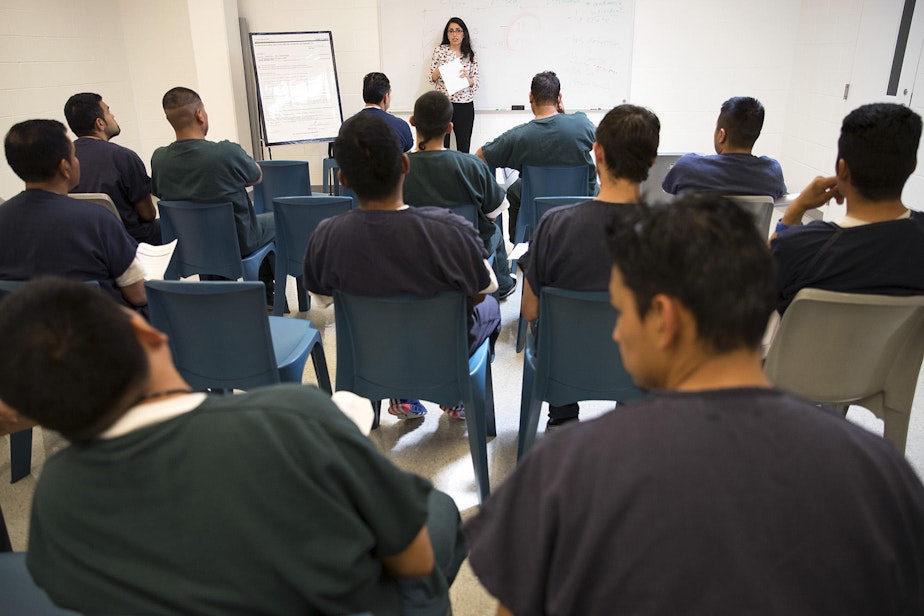It's the only legal help some immigrants have — and it's getting scrapped

Every day at detention centers around the country, lawyers give "know your rights" presentations to immigrants facing deportation. For many, it’s the only legal help they’ll get.
And the feds just pulled the money for the program.
“In English, this is called a master calendar,” said Virginia Cole, a legal adviser with the Northwest Immigrant Rights Project, a nonprofit based in Seattle.
Cole was giving a crash course on immigration court to dozens of detainees packed into a windowless room at the Northwest Detention Center in Tacoma. Their one-hour presentation went by fast.
“What happens in court?
Sponsored
“What does the judge do?
“How do you pay a bond?”
Cole raced through the basics.
Since 2003, the Department of Justice has funded these brief workshops as part of its Legal Orientation Program (LOP). The aim is partly to help make the court process more efficient — in Tacoma and at detention centers around the country.
The DOJ plans to suspend this program at the end of April.
Sponsored
Matt Adams, legal director of the Northwest Immigrant Rights Project, said it’ll be tough to continue the workshops without federal support.
“We have grave concerns about what type of access will be afforded to us,” Adams said, recalling a time before the LOP program was established.
“In the past … it was much more difficult to find out who’s locked up, much more difficult to arrange times to see them, and to have the officials gather them together for the group presentations," he said.
Adams said his staff reached roughly 3,000 detainees a year through the program.
DOJ officials did not respond to KUOW’s request for comment. However, recipients of the LOP funding said DOJ officials informed them they’re temporarily suspending the program in order to review its effectiveness. In 2012, a cost analysis from the DOJ’s Executive Office of Immigration Review found the program saves millions every year in detention and court costs.
Sponsored
Adams said his staff aims to keep the workshops going. But without DOJ’s stamp of approval, he expects a lot of obstacles ahead.
“It’s going to be very difficult,” he said. “Unless Congress forces the Department of Justice to change its tune, we’re looking at the indefinite suspension of this program.”

